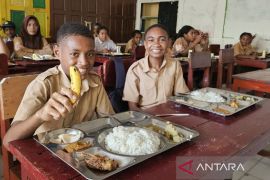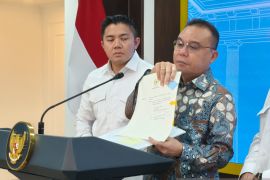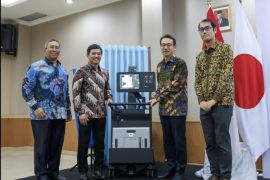"Children represent 30 percent of Indonesia`s population, but they will determine 100 percent of the nation`s future," Minister for National Development Planning/Head of Bappenas Sofyan Djalil stated.Jakarta (ANTARA News) - The United Nations International Childrens Emergency Funds (UNICEFs) grants for Indonesia increased by 14 percent to US$146 million for the next five years as against US$127 million allocated in the previous corresponding period.
During the signing of a cooperation agreement with UNICEF on Monday, Minister for National Development Planning/Head of the National Development Planning Board (Bappenas) Sofyan Djalil stated that the grant will be used for six key areas ranging from matters concerning social protection of children to improving the quality of childrens education.
"Children represent 30 percent of Indonesias population, but they will determine 100 percent of the nations future," he affirmed.
The UNICEF Representative Gunilla Ollsons attended the signing event.
Sofyan explained that the six main areas comprised child development and survival, early childhood education, child protection, social policy, emergency preparedness and disaster risk reduction, as well as communication and public advocacy.
The six areas are included in the "Country Program Action Plan (CPAP)," which adapts to the principles of the National Medium Term Development Plan 2015-2019, of the documents of the United Nations Development Framework (UNDF) and the Sustainable Development Goals (SDGs), as well as the Strategic Plan of the UNICEF.
Sofyan emphasized that the issue of child development in Indonesia cannot be separated from access to health services and inequality of opportunities.
He cited an example that as the per capita income in Indonesia increased, it should also improve the quality of life of the children. However, the minister said, based on the study results, the height of 30 percent of Indonesias child population was not ideal.
"Why should this be the case when the economy is progressing? The per capita income is increasing, but the children are not reaching the required height. There must be something lagging in areas such as parenting, nutrition, or the childrens diet," he stated.
Sofyan said the children must avail their rights and opportunities since they are growing and developing.
He also hoped that UNICEFs assistance would not only be in the form of grants but also studies based on the experience of international organizations in resolving children-related issues in other countries.(*)
Editor: Heru Purwanto
Copyright © ANTARA 2015










